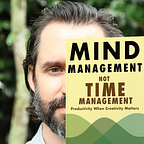22 Laws of “The Crowd”
A Breakdown of the (Sometimes Dark) Art of Mass Influence
While a few rational individuals occasionally move humanity forward, The Crowd never gets more rational.
For example, many people used to think the world was flat. Now, everyone accepts the world is round. The Crowd didn’t rationally deduce this. They just accepted a new dogma from a few rational influencers.
Maybe this is why, despite being well over 100 years old, Gustave Le Bon’s The Crowd, aside from a few “old-fashioned” viewpoints, still reads like the instruction manual for crowd psychology.
Here are 22 quotes from The Crowd:
- Thousands of isolated individuals may acquire at certain moments, and under the influence of certain violent emotions — such, for example, as a great national event — the characteristics of a psychological crowd.
- In a crowd every sentiment and act is contagious, and contagious to such a degree that an individual readily sacrifices his personal interest to the collective interest.
- A crowd thinks in images, and the image itself immediately calls up a series of other images, having no logical connection with the first.
- The mode of reasoning of crowds resembles that of the Esquimaux who, knowing from experience that ice, a transparent body, melts in the mouth, concludes that glass, also a transparent body, should also melt in the mouth.
- Our reason shows us the incoherence there is in these images, but a crowd is almost blind to this truth, and confuses with the real event what the deforming action of its imagination has superimposed thereon.
- A chain of logical argumentation is totally incomprehensible to crowds…
- To say that a fact has been simultaneously verified by thousands of witnesses is to say, as a rule, that the real fact is very different from the accepted account of it.
- To exaggerate, to affirm, to resort to repetitions, and never to attempt to prove anything by reasoning are methods of argument well known to speakers at public meetings.
- Appeals to sentiments of glory, honour, and patriotism are particularly likely to influence the individual forming part of a crowd.
- The unreal has almost as much influence on them as the real. They have an evident tendency not to distinguish between the two.
- Crowds, being incapable both of reflection and of reasoning, are devoid of the notion of improbability; and it is to be noted that in a general way it is the most improbable things that are always the most striking.
- An accident which caused the death of only five hundred instead of five thousand persons, but in a single day and in public, as the outcome of an accident appealing strongly to the eye, by the fall, for instance, of the Eiffel Tower, would have produced, on the contrary, an immense impression on the imagination of the crowd.
- The masses have never thirsted after truth. They turn aside from evidence that is not to their taste…
- Whoever can supply them with illusions is easily their master; whoever attempts to destroy their illusions is always their victim.
- The experiences undergone by one generation are useless, as a rule for the generation that follows, which is the reason why historical facts, cited with a view to demonstration, serve no purpose.
- [The only utility of historical facts] is to prove to what an extent experiences need to be repeated from age to age to exert any influence, or to be successful in merely shaking an erroneous opinion when it is solidly implanted in the mind of the masses.
- The leaders [of crowds] are not gifted with keen foresight, nor could they be, as this quality generally conduces to doubt and inactivity.
- The majority of men, especially among the masses, do not possess clear and reasoned ideas on any subject whatever outside their own speciality.
- Affirmation pure and simple, kept free of all reasoning and all proof, is one of the surest means of making an idea enter the mind of crowds.
- The thing affirmed comes by repetition to fix itself in the mind in such a way that is accepted in the end as a demonstrated truth.
- The tyranny exercised unconsciously on men’s minds is the only real tyranny, because it cannot be fought against.
- …nothing is more mobile and changeable than the thought of crowds, and nothing more frequent than to see them execrate today what they applauded yesterday.
Once you know these laws, and the others explained in The Crowd, you start to see them work in crowd psychology everywhere. Be careful what you do with this knowledge. It’s very powerful.
